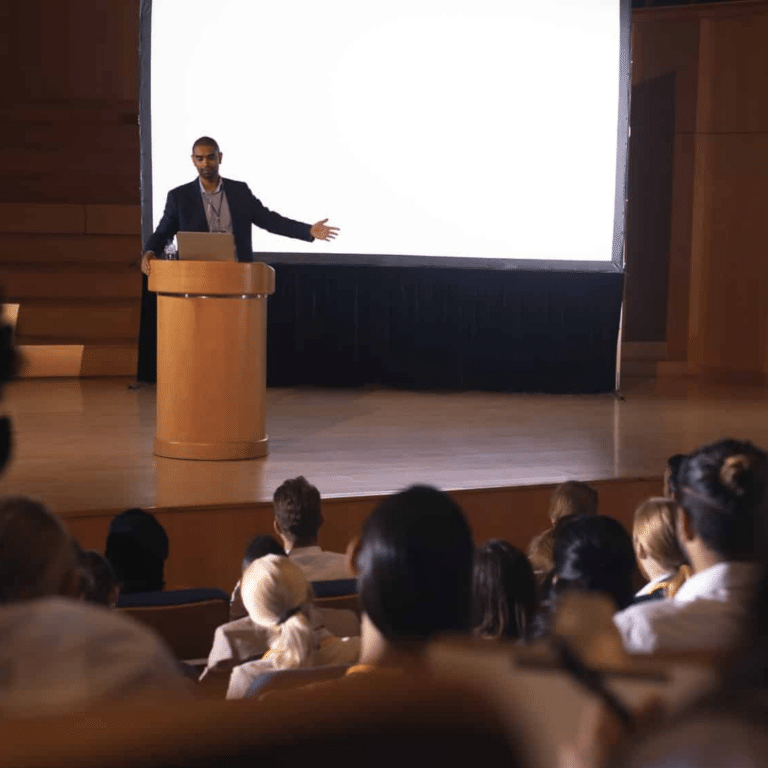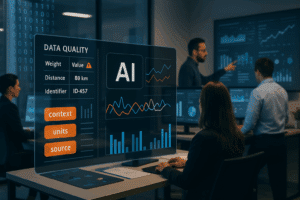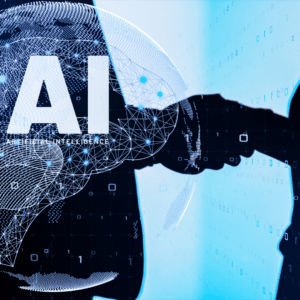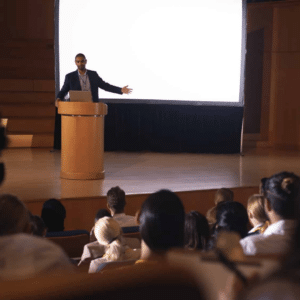In a rapidly evolving field like data analytics, staying ahead of the curve is essential. Attending events such as the STIDS 2024 offers invaluable insights into the latest advancements. This article will provide a comprehensive overview of what you can expect from the STIDS 2024 keynote and the broader event, ensuring you are well-prepared and informed.
One STIDS 2024 Keynote will feature Dr. Andreas Tolk discussing how semantic technology facilitates cross-disciplinary collaboration by enhancing interoperability between different tools and methods, addressing infrastructure and implementation challenges, and overcoming conceptual differences within teams. These points merely scratch the surface of what STIDS 2024 has to offer. Additionally, the conference will include technical research presentations, engaging sessions and workshops, exclusive training seminars, providing a comprehensive learning experience for all attendees, and more.
Key Takeaways:
- Hybrid support solutions integrate diverse tools and methodologies, creating a cohesive, collaborative environment that enhances team efficiency and problem-solving capabilities.
- Semantic technology and hybrid support solutions enable seamless cross-disciplinary collaboration by standardizing data and addressing infrastructure and conceptual challenges.
- STIDS 2024 is an excellent platform for researchers to present high-quality, original work in data science, AI, cybersecurity, and semantic technologies, contributing to critical scholarly dialogue and future directions in these fields.
- STIDS 2024 offers exclusive training seminars, workshops, and technical research on different topics providing practical skills that attendees can immediately apply.
- STIDS 2024 provides unparalleled opportunities to learn from experts, engage with cutting-edge research, and network with professionals, enhancing your knowledge and professional growth.
Continue reading to explore more about Dr. Tolk’s groundbreaking keynote and other significant aspects of the event, including additional sessions and workshops, expert panels, and networking opportunities.
What are Hybrid Support Solutions for Cross-Disciplinary Teams?
Hybrid support solutions combine tools and methods from various disciplines to address complex socio-technical challenges. These solutions enhance cross-disciplinary collaboration by leveraging the strengths of diverse approaches. The key to their effectiveness lies in their ability to integrate different perspectives and methodologies, thereby creating more robust and innovative solutions. For example, in a team composed of cybersecurity experts and data scientists, hybrid solutions can streamline workflows by ensuring compatibility between different systems and tools, ultimately leading to more efficient problem-solving.
STIDS 2024 Keynote by Andreas Tolk
The STIDS 2024 Keynote by Andreas Tolk will delve into the specifics of hybrid support solutions, focusing on how semantic technology can facilitate cross-disciplinary collaboration. Semantic technology plays a crucial role in enhancing interoperability between different tools and methods, addressing infrastructure and implementation challenges, and overcoming conceptual differences within teams. Dr. Tolk, with his extensive experience at The MITRE Corporation, will provide valuable insights into the practical applications of these technologies.
The Role of Semantic Technology in Cross-Disciplinary Collaboration
Semantic technology is pivotal in creating a common understanding across various disciplines. It enhances interoperability by enabling different tools and methods to work together seamlessly. For instance, semantic technology can help unify data formats and terminologies, making it easier for teams from different backgrounds to collaborate effectively. Real-world examples include the integration of health data from multiple sources to improve patient outcomes. Studies have shown that integrating health data from various electronic health records (EHRs) can improve operational efficiency by 70%, enhancing patient care by reducing errors and improving data accessibility. These points will be elaborated on during Dr. Tolk’s STIDS 2024 Keynote.
Addressing Infrastructure and Implementation Challenges
Cross-disciplinary teams often face significant infrastructure and implementation challenges, such as differences in data formats, software incompatibilities, and varying technical standards. The STIDS 2024 keynote will address how hybrid support solutions provide a framework for integrating diverse tools and methods. Strategies to overcome these challenges include adopting common data standards, using middleware to bridge software gaps, and implementing robust data governance practices. By tackling these challenges, teams can enhance their collaborative efforts and achieve more effective outcomes.
Overcoming Conceptual Differences Within Teams
Conceptual differences in cross-disciplinary collaboration can hinder progress and lead to misunderstandings. These differences often stem from varying terminologies, methodologies, and underlying assumptions. Techniques for bridging these gaps include fostering open communication, providing cross-training opportunities, and using semantic technology to create a shared understanding. For example, in a project involving both engineers and social scientists, semantic technology can help unify different perspectives, ensuring that all team members are on the same page and can contribute effectively to the project’s goals. These approaches will be explored further in the STIDS 2024 Keynote.
Call for Papers: Showcase Your Research at STIDS 2024
STIDS 2024 invites submissions across a diverse range of topics, including data science, artificial intelligence, cybersecurity, and semantic technologies. The event seeks original, high-quality research contributions that offer innovative practices and insightful findings. Authors are encouraged to submit their work to contribute to a scholarly dialogue that shapes future directions in these critical and dynamic fields. This is an excellent opportunity for researchers to showcase their work and engage with the academic community.
Important Dates:
- Paper Submission Deadline: July 24, 2024
- Notification of Acceptance: August 26, 2024
- Tutorial Submission Deadline: August 26, 2024
- Notification of Tutorial Acceptance: August 26, 2024
- Camera-Ready Paper Deadline: September 30, 2024
- Presentation Deadline: October 7, 2024
Submission guidelines for STIDS 2024 require that submissions be either technical papers or extended abstracts. These papers must be original, unpublished, and not under consideration elsewhere. Authors are expected to follow the IEEE manuscript templates for formatting. Each paper is limited to six pages, including figures and references. Extended abstracts, on the other hand, must be concise and not exceed three pages. These guidelines ensure that all submissions meet the standards for quality and consistency expected at the conference.
Beyond STIDS 2024 Keynote: Exclusive Training Seminar, Workshops, and More
STIDS 2024 is not just about the STIDS 2024 keynote. The event features an exclusive training seminar, workshops, and more, offering a comprehensive learning experience. Topics include applied ontology, real-time workflows, and AI applications. The seminar on October 21st features sessions with Prof. John Beverly on structured knowledge frameworks for AI innovation and Dr. Dan Maxwell on cutting-edge analytic and software development methods. An afternoon workshop will synthesize morning insights and focus on practical solutions through collaboration. The exclusive training seminar will provide attendees with hands-on experience, enabling them to apply the concepts discussed in the keynote to real-world scenarios. This holistic approach ensures participants leave with practical skills and knowledge they can immediately apply in their work.
Why Attend STIDS 2024
Attending STIDS 2024 offers numerous benefits. The event provides a unique opportunity to learn from leading experts, engage with cutting-edge research, and network with professionals from various disciplines. Past STIDS events have been instrumental in advancing the field of data analytics, providing valuable insights, and fostering collaboration among attendees. By attending, you can apply what you learn to your work, improving decision-making processes, enhancing operational efficiency, and driving innovation within your organization. Additionally, the structured networking sessions provide a platform to connect with industry leaders and peers, fostering collaborations that can drive your projects forward. The event also includes a call for papers, encouraging the submission of high-quality research that contributes to the scholarly dialogue in the field.
Elevate Your Expertise and Drive Innovation
The STIDS 2024 Keynote by Andreas Tolk on Hybrid Support Solutions provides valuable insights into enhancing cross-disciplinary collaboration through semantic technology. By addressing interoperability challenges, and infrastructure barriers, and unifying diverse perspectives, these hybrid solutions lead to more effective teamwork and improved organizational outcomes.
Don’t miss out on the opportunity to elevate your expertise in data analytics and to learn more about cross-disciplinary collaboration. Join us at STIDS 2024 to learn from industry leaders, engage with cutting-edge research, and network with professionals. Register now for a transformative experience that will drive innovation and enhance your professional development.
Energize your data and drive innovation by partnering with KaDSci. Our expertise in operations research, systems analysis, and predictive analytics can help you overcome data analytics challenges and enhance team efficiency. Contact us to learn how we can support your organization’s goals.
What are the future trends in hybrid support solutions for cross-disciplinary teams?
The future of hybrid support solutions for cross-disciplinary teams looks promising, with several emerging trends set to enhance collaboration further. These include advancements in artificial intelligence (AI) and machine learning (ML), which can automate and optimize the integration of diverse tools and methods. Additionally, the increasing adoption of cloud-based platforms allows for more flexible and scalable solutions. By staying ahead and adopting these trends, organizations can ensure their teams are equipped with the latest technologies and methodologies to tackle complex challenges effectively.
How can organizations implement hybrid support solutions to improve team collaboration?
Organizations can implement hybrid support solutions to improve team collaboration by adopting several key strategies. First, they should standardize data formats and terminologies to ensure seamless communication across different tools and methods. Utilizing middleware can bridge software gaps, enhancing interoperability. Providing cross-training opportunities for team members can foster a shared understanding and unify diverse perspectives. Additionally, integrating AI and machine learning can automate and optimize workflows, while adopting cloud-based platforms can offer scalability and flexibility. By implementing these strategies, organizations can enhance their collaborative efforts and achieve more effective outcomes.
What is the significance of submitting papers to STIDS 2024?
Submitting papers to STIDS 2024 is significant because it allows researchers to contribute to the scholarly dialogue on emerging trends and challenges in data science, AI, and cybersecurity. High-quality papers selected for presentation at the conference help shape future directions in these fields. Authors have the opportunity to showcase their research, gain feedback from experts, and enhance their work’s visibility and impact within the academic and professional communities.










